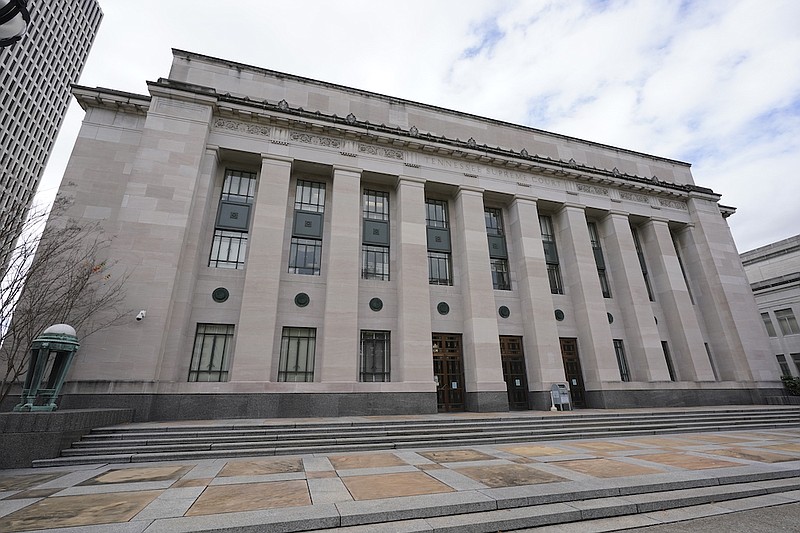Howard Atkins first got the news that may soon change his life from a fellow inmate inside Tennessee's Northwest Correctional Complex. That inmate appeared at the front door of Atkins' unit, called him out and then started jumping up and down, saying, "Have you heard?"
It was the Friday before Thanksgiving, and the Tennessee Supreme Court had just ruled that Tennessee's mandatory life sentences for juvenile offenders violate the U.S. Constitution.
Atkins, in his 22nd year of incarceration, could be eligible for parole in as soon as three years -- instead of facing the prospect of decades more in prison.
"We hugged, and it was kind of surreal," said Atkins, speaking by phone from the prison in a joint interview with Tennessee Lookout and Nashville Public Radio. "It's still hard to believe. I'm thrilled with the decision. ... It's amazing to have hope again."
Atkins is one of 122 people serving life sentences in Tennessee prisons who now have a shot at parole following the state Supreme Court ruling. All 122 were sentenced to life in prison as teenagers after convictions for felony murder, a sentence that requires a minimum of 51 years served.
Until now, Tennessee's life sentences for juveniles have been the lengthiest in the nation, even as developments in brain science establishing teens' immaturity in decision-making have prompted other states to revise similar sentencing guidelines. Nearly half of all states now allow for a parole review after 25 years.
And in 2012, the U.S. Supreme Court held that "mandatory life without parole for those under the age of 18 at the time of their crimes violates the Eighth Amendment's prohibition on 'cruel and unusual punishments'" -- a decision that didn't impact Tennessee sentencing, which technically is not a true life sentence since it provides the opportunity for a parole hearing after 51 years.
Atkins was convicted in the murder of his stepfather, Ray Conway, in 2000. He was 16 years old at the time. According to court records, Atkins' stepfather had been physically abusive to his mother and had hit Atkins on several occasions, too. On the day of the murder, Atkins' mother had told her husband she would be seeking a divorce. Atkins said he feared the stepfather would not let them go.
At the urging of his mother, and against his defense attorney's advice, Atkins turned down a plea deal to serve 13 years in prison. Instead, after a jury trial, Atkins was sentenced to life, with his first eligibility for parole when he is past retirement age.
"I don't want it to look like I'm diminishing my culpability or anything like that as far as looking at that plea bargain, but I was just a dumb kid when I turned it down," Atkins said last week. "I actually would have been out of prison 10 years ago ... except for the fact I didn't sign a piece of paper when I was 17."
Now 38, Atkins has grown into an adult in prison and in recent years worked with defense attorneys and state lawmakers who have tried, unsuccessfully, to reform Tennessee's mandatory life sentences for juveniles. He has given a lot of thought to why they don't make sense.
"They haven't matured," he said. "It seems like a double standard. People under 18, we don't trust them to vote or drink or sign contracts, things of that nature, or joining the military to an extent. Somebody under 18 is a victim of a crime, they say, 'Oh, that poor child.' But if the same person is a perpetrator it gets into, 'Well, what a horrible monster they must be.'
"And the thing is ... every juvenile lifer I've met were in some kind of bad circumstances that led to their crime. It wasn't like they were sitting around saying, 'Yeah, I'd like to go kill someone today,'" he said. "They deserve a second chance or at least a second look."
Atkins by objective measures has been a model prisoner. He is a visual artist, writes short stories and performs in a band. In his 22 years, he has no incurred no disciplinary record, a rarity in prisons where even minor infractions can lead to being written up.
Earlier this year, before the Supreme Court decision, he submitted a lengthy application for clemency that is still pending. It contains numerous certificates documenting the classes he has taken and more than a dozen letters of support, including one signed by two dozen correction officers. Few clemency petitions are granted in Tennessee, however, and should Atkins' clemency petition be rejected, the Supreme Court's decision has given him a chance for parole in three years.
"I just believed eventually it would matter," Atkins said of the work he has done in prison. "I want to keep trying to improve and try to make it through this. Even if it hadn't changed, I wanted to at least make it through."
"You look back, and I'm not the same person I was as a kid," he said.
Read more at TennesseeLookout.com.
